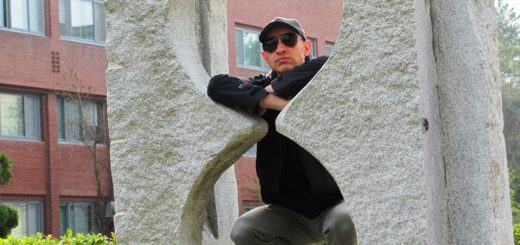What Independence Means: A Personal View
I once had more readers in any given week than Nietzsche and Kierkegaard had in their entire lives, combined. I lost all those readers by choice, or rather I should say by lack of any agreeable alternative. The thought of “keeping them” was revolting, given what I would have had to do to myself to achieve that end. I now write — as much as ever, perhaps more — entirely for myself and a tiny handful of personal acquaintances who are interested in what I am thinking. To quote the same line from Aristotle that I quoted six years ago as the introduction to my first article about Donald Trump’s presidential run, “We must love our friends, but we must love truth more.”
I have some insight into those individuals, existing in large numbers today, who pass for “public intellectuals.” I have watched their trajectory as one to which mine once, to a lesser degree, ran parallel, although I was never willing to do what they are willing to do, partly because I have more self-respect than they have, and partly because I refuse to view my potential audience as “my people,” the way they do — the way one must do in order to consciously pursue a life of public influence in a wide sphere. In short, one must succumb to the ways of sophistry and self-promotion. That, I was never willing to do. The heady pleasures of anonymous flattery (“my favorite writer,” “the best political essay I have ever read”) and the temptations of being assigned some dubious significance never quite got the better of me, as they have gotten the better of a lot of mediocre minds that have learned to exploit the smallness of our times to make themselves appear huge by comparison with their surroundings. I need neither money nor applause so badly as to sacrifice the things within myself that neither money nor applause can replace.
I will happily be the forgotten one, rather than give up a single cell of my thought to the exigencies of social success. I will happily share my best sharable thoughts and energies with a true friend, or with the small number of true students who need and deserve the full attention and sincere guidance of one real teacher in this age of careerist apparatchiks and celebrity gurus — or, if such became the case, with no one at all — rather than lament the loss of an echo chamber (i.e., a hollow space) that would use me, as it uses others, to drown out the deafening silence of its own soul. I will happily watch it all pass me by, rather than be swept up in late modern man’s collective rush to the nothingness. I will happily be whatever the gods intend me to be, rather than trade myself for whatever my little devils would entice me to become.
“Better dead than red,” and its predecessor in freedom of thought, “Give me liberty or give me death,” are dignified mottos that have gone completely out of fashion in our time, although they are still paid lip-service by undignified people who would in truth choose red over dead every day of the week, and who would not abide even a moment’s discomfort, let alone death, for the sake of liberty. Those mottos, or rather the ideas underlying them, have always appealed to my soul’s best inclinations, although my preferred formulation — the one most suited to my private temperament and my ultimately apolitical intentions — would be the one of my own coinage and most frequent use: “What would Socrates do?” I know that he would not accommodate his ideas about the most important matters to the contingencies of commercial viability, or building a social network, or attracting new subscribers. He would not choose to stay “relevant” or “connected” at the price of his spiritual freedom or his rational detachment. He would never make an important decision of any kind, least of all one related to truth, the rational life, or justice, on the basis of what “they” want to hear, what “they” are willing to pay for, or what would make life most socially comfortable for himself. He would never allow the illusion of personal significance to become a rationalization for compromising the good of his soul. On the contrary, he would guard his soul at all costs, especially against its most dangerous enemy, himself, meaning against those innate weaknesses of immaturity that lie, perhaps dormant but never completely dead, in the heart of any man: emotional dependence upon, or practical deference to, the approval, encouragement, or acceptance of others.



